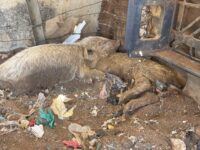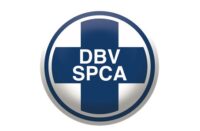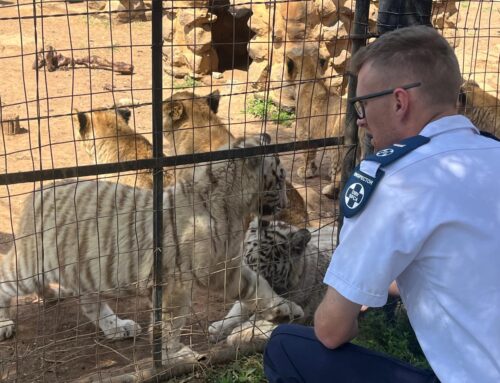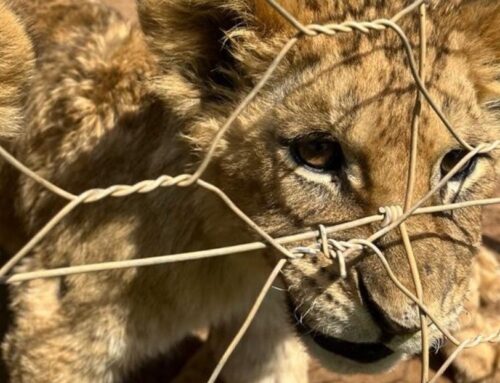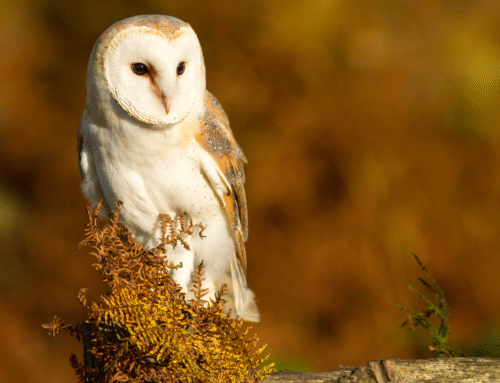Pangolins (Ietermagog) are described as odd animals that are seldom seen in the wild. This is a mammal covered in dark grey-brown scales which cover the body like roof tiles, a small head and pointed snout with a long thin tongue.
It walks on its padded hind feet with the front legs held off the ground, touching it now and then. The front feet are equipped with long curved claws for digging. These usually solitary animals are mainly nocturnal, lives in old Antbear holes and when threatened roll themselves into a ball. They feed mainly on ants and termites. Pangolins are listed nationally as a vulnerable species, facing a high risk of extinction in the wild in the medium-term future.
These animals face the constant threat of the muti trade, are extremely vulnerable to electric fences erected to keep other animals and people safe and in the recent years there has been an increase in the illegal trade of live pangolins.
A number of wild caught animals have been offered to zoos and animal traders recently. Some of the lucky ones could be returned to the wild through the efforts of different rehabilitation centres. Keeping a pangolin alive in a captive situation is extremely difficult due to the fact that they are specialist feeders.
If you are as passionate about animals and their well-being as we are, consider supporting our causes by donating.
Latest News Posts
Will You Be the One Who Takes Action?
Most people will scroll past this. But will you be the one who stands up for animals?
Animal welfare isn’t always in the spotlight, but it changes lives – for every neglected, abused, or suffering animal we help. Our teams work tirelessly, often behind the scenes, ensuring animals across South Africa are protected.
This work is relentless. The challenges are immense. But with more hands, hearts, and resources, we can do even more.
The equation is simple: the more supporters we have, the greater our reach, the stronger our impact.
Be part of the change. Become an NSPCA Project Partner today. From just R50 per month, you can help ensure that no animal suffers in silence.

